Headache or
hidden problem?
Decode your pain and discover the quickest way to feeling your best again.
I get headaches
Slide to select one answer only.
I experience pain in these locations
Select as many answers as required.
Forehead
Temples
Back of head or neck area
Around the face
Entire head
One side of the head



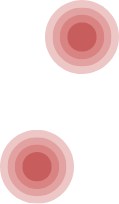

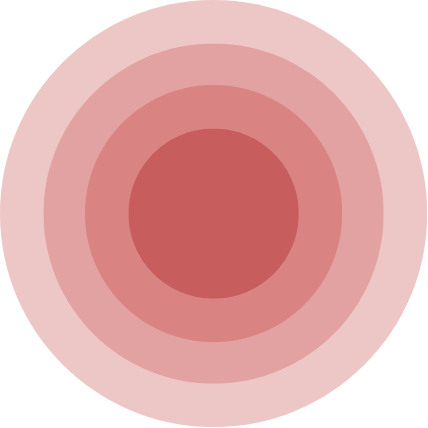

I would describe the pain as
Select as many answers as required.

Pressure

Sharp

Throbbing

A dull ache
The pain usually lasts for
Slide to select one answer only.
I experience these other symptoms
Select as many answers as required.

Nausea or vomiting

Muscle tightness
Sensitivity to sound or light
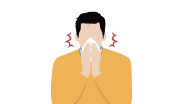
Nasal congestion

Blurred vision
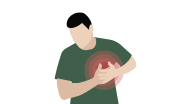
Chest pain
None
These factors trigger my headaches
Select as many answers as required.

Stress

Lack of sleep

Certain foods

High blood pressure
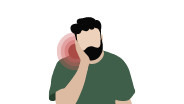
Chewing or speaking

Allergies or flu
No idea
You may have a Tension Headache
Tension headaches are the most common type of headache, and often feel like a tight band around your head. Stress, poor posture, and muscle tension are common culprits. Treatment often involves over-the-counter pain relievers, relaxation techniques, and lifestyle adjustments.

You may have a Migraine
More than just a headache, migraines are neurological conditions marked by intense throbbing pain, often with nausea, vomiting, and sensitivity to light and sound. Treatment may include both pain relieving and preventive medications, lifestyle changes and alternative therapies.

You may have a Cluster Headache
Cluster headaches bring severe, one-sided pain in repeated cycles. They often occur multiple times a day for weeks or months. Treatment may include medication to address acute pain, preventive treatments and lifestyle modifications.

You may have a Sinus Headache
Sinus headaches typically come with nasal congestion and pain in the forehead, cheeks, and around the eyes. They are commonly caused by infections or allergic reactions. Treatment usually includes decongestants, pain relievers, and, if a bacterial infection is suspected, antibiotics.

You may have Trigeminal Neuralgia
This condition affects the trigeminal nerve in the head, which provides sensation to parts of the head and the face. It causes intense, sudden pain in the face. Treatment options include medication, nerve blocks, and, in severe cases, surgery.

You may have a Hypertension Headache
These are dull, throbbing headaches, often with dizziness or shortness of breath. They can be a sign that your blood pressure is dangerously elevated, requiring immediate medical attention.

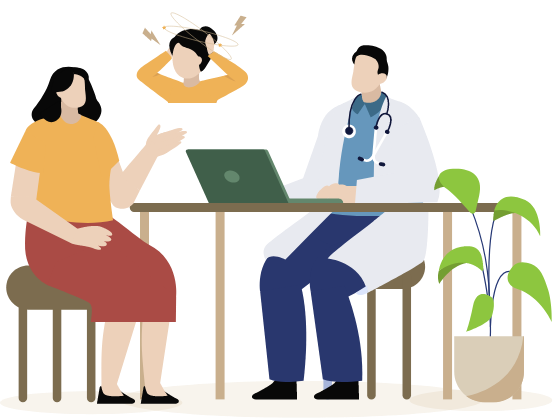
Understanding headaches
Learn what makes each type unique and how you can manage them.
Tension headaches
Tension headaches are the most common type of headache, and often feel like a tight band around your head. Stress, poor posture, and muscle tension are common culprits. Treatment often involves over-the-counter pain relievers, relaxation techniques, and lifestyle adjustments.
Read moreMigraines
More than just a headache, migraines are neurological conditions marked by intense throbbing pain, often with nausea, vomiting, and sensitivity to light and sound. Treatment may include both pain relieving and preventive medications, lifestyle changes and alternative therapies.
Read moreCluster headaches
Cluster headaches bring severe, one-sided pain in repeated cycles. They often occur multiple times a day for weeks or months. Treatment may include medication to address acute pain, preventive treatments and lifestyle modifications.
Read moreSinus headaches
Sinus headaches typically come with nasal congestion and pain in forehead, cheeks and around the eyes. They are commonly caused by infections or allergic reactions. Treatment usually includes decongestants, pain relievers, and, if a bacterial infection is suspected, antibiotics.
Read moreTrigeminal neuralgia
This condition affects the trigeminal nerve in the head, which provides sensation to parts of the head and face. It causes intense, sudden pain in the face. Treatment options include medication, nerve blocks, and, in severe cases, surgery.
Read moreHypertension headaches
These are dull, throbbing headaches, often with dizziness or shortness of breath. They can be sign that your blood pressure is dangerously elevated, requiring immediate medical attention.
Read moreHaemorrhagic stroke headaches
These headaches can occur during a haemorrhagic stroke, which happens when a blood vessel in the brain bursts and bleeds into nearby tissue. This type of headache may be accompanied by weakness or trouble speaking. If you experience these symptoms, it's important to go to an urgent care center right away for immediate treatment.
Read moreIce pick headaches
Ice pick headaches are sudden, sharp, stabbing pains — similar to the sensation of an ice pick, and typically last only a few seconds. Targeted medications and lifestyle changes may help reduce the frequency of these episodes.
Read moreWhen should you seek urgent care?
Some headaches may indicate a more serious condition. Seek immediate medical attention if you experience:
A sudden, severe headache unlike your usual ones
Severe neck stiffness, fever, or signs of infection
Sudden numbness or weakness in any part of your body
A headache that significantly disrupts your daily life
Headache accompanied by confusion, seizures, or loss of consciousness
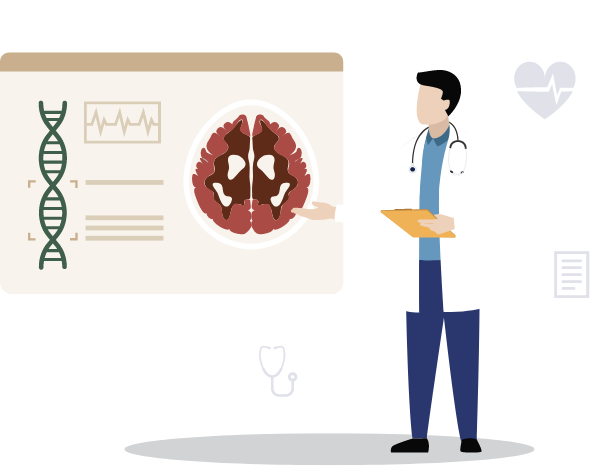
Fast facts
The doctor is in
Read our expert articles for valuable insights on headaches and how to manage them.
Hear from our patients
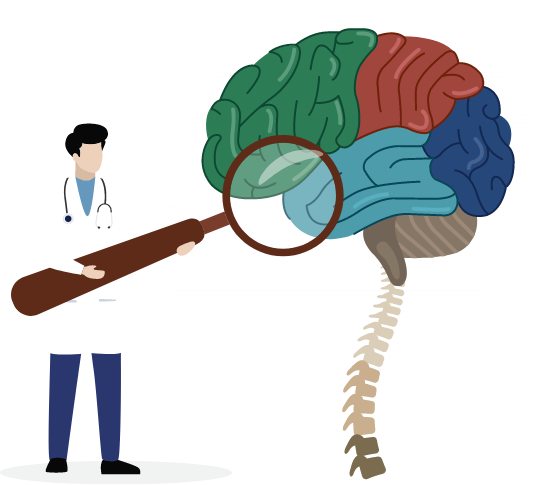
Mount Elizabeth brain and spine care
Navigating brain or spine concerns? You're not alone. Mount Elizabeth hospitals offer specialised care tailored to your needs. Our seasoned team combines innovative treatments with personalised support to help you on your path to recovery.
From complex surgeries to ongoing management, we're here to guide you every step of the way. Discover how our expertise can make a difference.
Meet our doctors
Estimate your care costs
Know what to expect, plan your finances and focus on healing - not the bills.
Get your estimate







